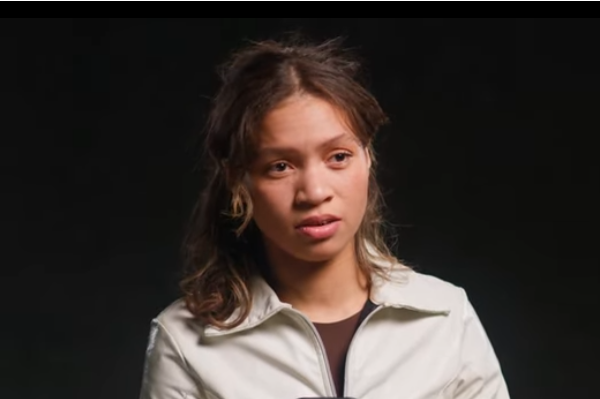As more people see Isobel Akuwudike on stage and television, their curiosity about her age has grown, but what most people notice is not just how many pieces she has done, but also how mature and varied they are. After graduating from Guildhall in 2023–2024, she is in her early twenties, that dynamic time in life when taking creative risks feels especially good and ambition is quite apparent. Given how quickly she has transitioned her academic training into professional employment, her entry into the film and theater industries feels incredibly effective.

Luciana in The Comedy of Errors, Cassandra in The Trojan Women, and Irina Arkadina in The Seagull were among the productions that brought her initial recognition at Guildhall. Her performances were remarkably similar to those of actors like Gemma Arterton, who likewise transitioned from classical training to film presence with amazing ease. Each role tested her ability to switch between comedy, sorrow, and nuanced psychological depth. Her confidence was significantly boosted by these early parts, which also provided her with the foundation she needed to take on more challenging tasks.
Isobel Akuwudike – Bio and Career Information
| Category | Details |
|---|---|
| Full Name | Isobel Akuwudike |
| Nationality | British |
| Age | Early 20s (Graduated Guildhall 2023–24) |
| Height | 5 ft 7.5 in |
| Hair / Eyes | Brown / Brown |
| Education | Guildhall School of Music & Drama, The BRIT School |
| Notable Films | The Road Trip (2024), Hostage (2025) |
| Stage Credits | The Comedy of Errors, The Seagull, The Handmaid’s Tale |
| Special Skills | Mezzo-Soprano singing, roller-blading, stage combat, motion capture |
Her career path is especially unique since it incorporates writing and original work in addition to acting. Akuwudike exhibited the type of self-directed creativity that has greatly shortened the distance between official training and professional recognition in Petra, a project she developed and performed. Owning one’s narrative may be a very effective way to develop one’s identity, as demonstrated by Michaela Coel’s success with Chewing Gum. The ability to create fresh material demonstrates that a performer in her early twenties is not satisfied with merely following predetermined courses.
Much of the discussion surrounding young British talent in recent days has focused on diversity and the variety of chances that are currently becoming available. As a young Black British actress, Akuwudike occupies the space between quality and representation. Both her contemporaries and younger audiences, who identify with her accomplishment, are greatly impacted by the societal shift that her work embodies. She has grown extremely versatile and ready for the hybrid needs of cinema, theater, and digital performance by utilizing her Guildhall training in addition to her own artistic abilities.
Her film credits, which include Hostage (2025) and The Road Trip (2024), indicate that she is entering the film industry at a speed that seems noticeably quicker than that of many of her peers. Even though these projects are still in their infancy, they help her establish herself in a field where early exposure is especially advantageous. In the same way that Daniel Kaluuya’s early parts served as stepping stones before to his breakthrough, they serve as her entry point into the larger cinematic conversation. Her ability to skillfully combine traditional theatrical technique with on-screen realism is what distinguishes her case.
Her abilities increase her adaptability even more. Her training in motion capture prepares her for projects in digital film and games in the future, while her mezzo-soprano voice offers possibilities to voice acting and musical theater. Akuwudike’s toolbox is remarkably resilient in a period when actors are required to adjust to multimedia demands. Her ability to skate, sing, fight, and create makes her a valuable tool for projects that require multifaceted performers, as casting directors are increasingly seeking performers who can switch across genres.
As a result, her age is not a constraint but rather a prism that highlights her remarkable growth. Through carefully chosen roles, she has already carved out her unique artistic identity, something that many actors only find much later. Her performances are not only incredibly well-executed but also emotionally impactful, demonstrating a young actor conscious of the potential social influence of her work. She exemplifies the harmony between self-control and audacity that frequently characterizes the generation of actors that make an impression.
Younger performers with adaptable skills were more well-known more quickly during the epidemic, when remote work and digital storytelling took center stage. Akuwudike gained momentum during a time when opportunities for less adaptable talent were drastically decreased thanks to her versatility, cross-platform performance, and even unique material creation. It serves as a positive reminder that she is at a time in history when flexibility is more important than experience alone.
She has already demonstrated that her career is about creating a robust body of work rather than just pursuing recognition by working with prestigious organizations like Guildhall and supporting plays that strike a balance between accessibility and artistic value. Securing continuity is frequently the largest obstacle for up-and-coming actors, but Akuwudike appears to have a very clear path: theatrical roots, screen exposure, and creative authorship. That combination works incredibly well for creating long-lasting careers.
